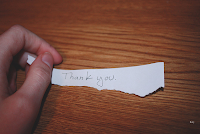 |
| from Step Brothers movie - best interview montage ever. |
Now it's time to close the deal.
DO
* Go to the interview. Whether or not you want the job, you should always go. Consider it practice. Plus, you never know who this person knows or where they'll be next.
* Be 10 minutes early. This gives you enough time to catch your breath, gather your thoughts and your notes, and take a sneak peek around the office.
* Be prepared. Have all your materials. Have your printed portfolio, iPad or laptop poised for presentation if they ask to go through your work. Also, be ready to discuss what you did and why for each campaign if they ask.
* Dress for the job you want. If you want a job as a high schooler, feel free to throw on some chucks, jeans and a random t-shirt. If you want to be employed at an ad agency, dress accordingly. You don't have to wear a suit and tie, but you should look polished and professional. (Feel free to add a bit of flair. You're a creative after all)
 * Know you story. They will inevitably ask "So, tell me about yourself." Have a 3 to 5 sentence response on hand that neatly rolls your personal and professional life into one. How do where you're from, where you went to school, your hobbies/passions and your career goals fit together to make you awesome?
* Know you story. They will inevitably ask "So, tell me about yourself." Have a 3 to 5 sentence response on hand that neatly rolls your personal and professional life into one. How do where you're from, where you went to school, your hobbies/passions and your career goals fit together to make you awesome? * Sell yourself. Talk about your skills, interests and experiences and how you can add something to the agency.
* Ask Questions. Ask for feedback on your work. Ask about the culture of the agency, recent positive news, the clients, the expectations of you and anything else you'd like to know pertaining to you joining the agency. (And if things are going well, ask to meet people. This will help you gauge if you like the place a bit more and give you new contacts to reach out to.)
* Say what you want. Let them know what kind of experience you're looking for. Not every agency/team/client is for you. So be clear as to where you think your skills would best be used and how you can properly be an asset to the agency. If you prefer digital, a partner, a mentor, a spot on the dodgeball team, say that.
* Research. Look up who you're meeting with and what they've done. Look up the agency and recent work and news. Look up salary ranges for someone at your level.
* Name drop. If you know someone who works there or who knows the interviewer (and who will vouch for you), slip their name into a sentence and see how it goes down. If you've worked under someone of the big names (and they don't hate you), mention what you've learned from them. Don't just name drop for the sake of name dropping.
* Say Thank You. Show your appreciation for their time. And send a follow up email or card after to thank them again. You can never say thank you enough.
DON'T
* Be late. Don't not call if you're going to be late. But seriously, don't be late.
* Chew gum. Also, don't eat anything smelly or teeth-staining before your interview.
* Lie. They'll find out and blacklist you.
* Be nervous. But if you are, say you are, and tell them you're just really excited to meet them because they're awesome/ the agency is awesome. Turn your negative situation into a positive.
* Be boring. Be engaging and interesting. Don't give one word answers and blank stares. Your personality matters almost as much as (sometimes more than) your portfolio. (I personally hate boring people as much as I hate assholes. I wish they'd walk into the ocean and take a deep breath.)
* Be rude or arrogant. Ever.
* Talk too much. Yes, you're excited and possibly nervous and possibly awesome. But don't overwhelm them with your stories, antics and chitterchatter. It's a dialogue not a monologue.
* Talk bad about anyone. (Even if it's true.) Find a way to turn the negative into a positive. What did you learn from the situation? How are you a better creative/employee?
* Show too much leg, cleavage, tattoos, toes, etc. Save that for your first day of work. (I kid! I kid!)
* Overstay your welcome.


























